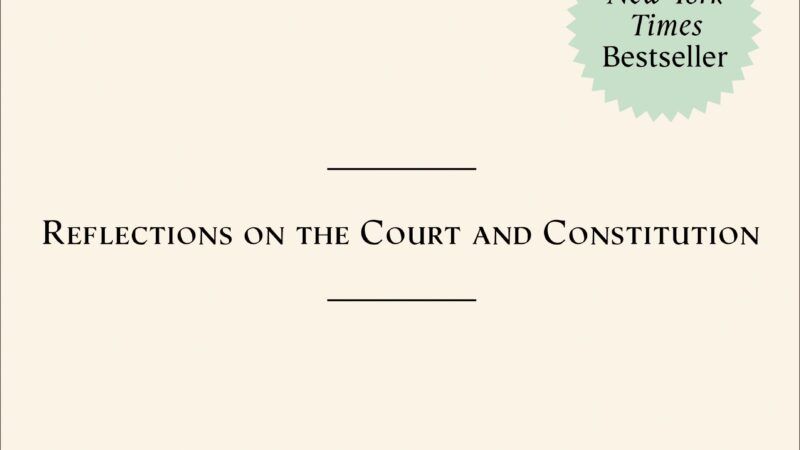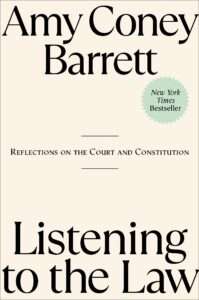Listening to Justice Barrett
My review of Amy Coney Barrett's Listening to the Law.

I reviewed Justice Amy Coney Barrett's Listening to the Law: Reflections on the Court and the Constitution for Civitas Outlook. My bottom line: the book is a worthwhile contribution to the shelf of books by sitting Supreme Court justices.
My review begins:
Amy Coney Barrett was not a likely judge, let alone a likely Supreme Court justice. A young Amy Coney did not even aspire to be a lawyer. She only settled on law school after college, over pursuing an English PhD, and excelled. She was an exceptional student who earned the admiration of her classmates and the profound respect of her professors, who would soon invite her to become a colleague. In 2002, she joined the faculty of the Notre Dame Law School, seeming to fulfill her professional vocation.
Just as her intellect had always attracted the notice of her peers, then-Professor Barrett attracted notice within the conservative legal movement. This led to her appointment to the U.S. Court of Appeals for the Seventh Circuit — one of several academics placed on the appellate bench during President Trump's first term — and just three years later, her elevation to the U.S. Supreme Court, replacing Justice Ruth Bader Ginsburg.
Within a year of joining the Court, Justice Barrett signed a book deal reportedly worth $2 million. The deal raised eyebrows in some quarters, even though most other recently confirmed justices have done the same, and some have earned more. Justice Barrett's book itself, Listening to the Law: Reflections on the Court and the Constitution, should not provoke much controversy, however. An instant New York Times best-seller, it is a valuable contribution to public discourse about the role of the courts and the Constitution.
Although Justice Barrett was an academic, this is not an academic book; far from it. Listening to the Law is written for an educated lay audience. It seeks to elucidate and explain, not break new ground. It is accessible and clear but not simplistic. In this regard, it has much in common with the late Chief Justice William Rehnquist's book on the Supreme Court, though it is also a bit more revealing and prescriptive. Indeed, Listening to the Law is likely the best lay introduction to the Court, the Constitution, and the reigning judicial philosophy in print. (And given how often critics of originalism struggle with fairly characterizing the target of their efforts, quite a few practitioners and legal academics would benefit from reading it too.)
The whole review is here.

